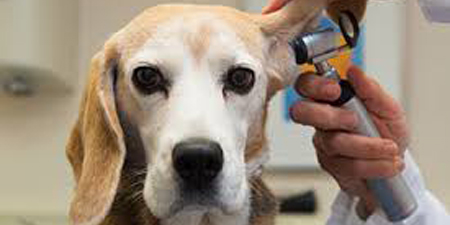- Navigation
- Home
- About
- » Meet Our Staff
- » Hospital Tour
- Services
- » Pet Wellness
- » Puppy and Kitten Care
- » Senior Pet Care
- » Pet Dental Care
- » Vaccinations
- » Microchip Implantation
- » Diagnostics Services
- » Pet Surgery
- » Pharmacy and Nutrition
- » Grooming
- » Boarding
- Resources
- » New Patient Info
- » Common Pet Health Issues
- » Canine Care Guide
- » Feline Care Guide
- » Pet Hospice and Euthanasia
- » Animal Rescue and Adoptions
- » Helpful Links
- News
- Contact
- » Schedule Appointment
- » Emergency
- » Request Prescription Refill
- Online Pharmacy
Senior Pet Care
Early detection and prevention of common senior pet problems
Just as puppies and kittens require special care, senior pets also have unique needs and considerations. While each pet is different, most cats are considered to be senior at the age of 10, and dogs can be termed senior at approximately age 7.
Common problems in senior pets include:
- Arthritis
- Dental disease
- Diabetes
- Hyperthyroidism
- Kidney disease
To help prevent the onset of common age-related conditions, we focus on the following:
- Early detection of disease
- Frequency of veterinary visits
- Increased parasite control
- Lifestyle/environmental changes
- Maintaining mobility
- Management of chronic diseases
- Mental health and awareness
Caring for a sick or aging pet
We recommend wellness exams at least twice a year and annual senior diagnostic screenings such as blood panels and urinalyses. These tests help us detect underlying medical conditions and increased frequency can aid in early treatment efforts. In general, it’s important to note any change (big or small) in your senior pet. For example, if your cat or dog seems to be moving slower than usual, it may be an indication of pain, not simply aging.
Signs of an emergency
When your pet is considered to be senior, it’s important to begin discussing any necessary adjustments that must be made to your pet’s diet. Weight gain can put a lot of strain on your pet’s joints and increases the risk for diseases such as diabetes. On the other hand, drastic weight loss can be a sign of a serious medical problem. If you have any concerns or observe a change in your senior pet’s eating habits, contact us immediately.
Call (205) 621-5755 to schedule an appointment
91 Weatherly Club Dr, Alabaster, AL 35007, info@weatherlyvets.com
Copyright © 2025 - Weatherly Animal Hospital

